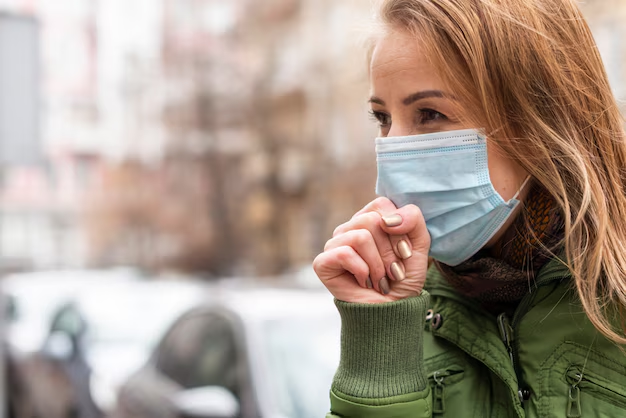Understanding Pneumonia Transmission: What You Need to Know
Pneumonia is a serious illness that can vary widely in its causes and effects. One common question is how pneumonia spreads, which is crucial for prevention and control. In this article, we'll delve into the various ways pneumonia can be transmitted, discuss types, symptoms, and risk factors, and provide practical tips to protect yourself and others.
What Is Pneumonia?
Pneumonia is an infection that inflames the air sacs in one or both lungs. The air sacs may fill with fluid or pus, causing symptoms such as cough, fever, chills, and difficulty breathing. Pneumonia can be caused by various organisms, including bacteria, viruses, and fungi. Understanding the source is key to determining how it may spread.
Types of Pneumonia and Their Causes
- Bacterial Pneumonia: Often caused by a type of bacteria called Streptococcus pneumoniae. It is the most common type in adults.
- Viral Pneumonia: Can occur as a complication of the common flu. Viruses such as influenza, respiratory syncytial virus (RSV), and, more recently, SARS-CoV-2 (the virus that causes COVID-19), can lead to pneumonia.
- Fungal Pneumonia: More common in people with weakened immune systems. Fungi causing this form are often found in soil or bird droppings.
How Does Pneumonia Spread?
Airborne Transmission
Viral and bacterial pneumonia can spread through airborne droplets released when an infected person coughs or sneezes. These droplets can be inhaled by someone nearby, facilitating the spread of the infection.
Direct Contact
Touching contaminated surfaces or coming into physical contact with an infected person can spread pneumonia. It's similar to how a cold or flu spreads, emphasizing the importance of good hygiene.
From the Environment
Some types of pneumonia, particularly fungal pneumonia, are contracted from the environment. This spread is less about person-to-person contact and more about exposure to specific fungal spores.
Hospital-Acquired Pneumonia
This kind of pneumonia occurs in hospitalized patients, often due to the presence of bacteria in medical facilities. Patients on ventilators are particularly at risk.
Can Anyone Get Pneumonia?
While anyone can contract pneumonia, certain groups are at higher risk:
- Elderly adults and young children
- Individuals with weakened immune systems
- People with chronic illnesses like asthma, COPD, or heart disease
- Smokers and those with a history of excessive alcohol use
Symptoms to Watch For
While pneumonia symptoms can vary, common signs include:
- Persistent cough
- High fever followed by sweating and shaking chills
- Shortness of breath and chest pain
- Fatigue, headache, and muscle pain
Recognizing symptoms early can help in seeking prompt medical attention, reducing the risk of complications.
Prevention Tactics
Vaccination
Vaccines are one of the most effective ways to prevent pneumonia, especially bacterial types. The pneumococcal vaccine is recommended for children under two, adults over 65, and people with certain health conditions.
Good Hygiene
Adhering to simple hygiene practices can greatly reduce the risk of spreading pneumonia:
- Wash your hands regularly: Use soap and water or an alcohol-based hand sanitizer, especially after coughing or sneezing.
- Cover your mouth and nose: Always use a tissue or your elbow to cover coughs and sneezes.
- Avoid close contact: Keep your distance from those who are sick.
Healthy Lifestyle
Maintaining a healthy lifestyle strengthens your immune system, lowering the risk of pneumonia:
- Eat a balanced diet, rich in fruits and vegetables.
- Exercise regularly to keep your immune system robust.
- Get adequate rest to help your body recover and resist infections.
Myths and Misconceptions
"You Can't Get Pneumonia From a Cold"
It's true that you cannot directly catch cold-induced pneumonia from someone with a cold, but the same viruses that cause colds can also lead to pneumonia under the right conditions.
"Pneumonia Is Just a Severe Cold"
Pneumonia is much more serious than a cold or flu. It warrants medical attention, especially if symptoms worsen.
"Only Old People Get Pneumonia"
While older adults are at greater risk, pneumonia can affect anyone. Awareness and preventive measures are advisable for all ages.
When to Seek Medical Attention
Urgent care is necessary if you or someone you know experiences:
- Severe symptoms such as chest pain, high fever, or difficulty breathing
- Symptoms that persist beyond three days without improvement
- Newborns, young children, or elderly patients with symptoms should see a healthcare provider sooner.
Conclusion: Empower Yourself With Knowledge
Understanding how pneumonia spreads is your first line of defense in preventing it. By recognizing risk factors, keeping up with vaccinations, and practicing good hygiene, you can reduce the chances of contracting and spreading pneumonia. Awareness empowers you to keep yourself and those around you healthier.
Summary of Key Takeaways 🌟
- Types of Pneumonia: Bacterial, viral, and fungal with distinct transmission methods.
- Key Symptoms: Persistent cough, fever, chills, chest pain, and shortness of breath.
- Prevention Tips:
- 💉 Get vaccinated, particularly against bacterial pneumonia.
- 🧼 Practice good hygiene—wash hands and cover coughs.
- 🏋️♂️ Maintain a healthy lifestyle to boost your immune defenses.
- Myth-Busting: Pneumonia can affect anyone, not just the elderly.
- Seek Help: Urgent symptoms require medical attention to prevent complications.

Related Articles
- a Typical Pneumonia
- Can a Cold Turn Into Pneumonia
- Can a Sinus Infection Turn Into Pneumonia
- Can Amoxicillin Cure Pneumonia
- Can Amoxicillin Treat Pneumonia
- Can Baby Oil Cause Pneumonia
- Can Bronchitis Turn Into Pneumonia
- Can Covid Turn Into Pneumonia
- Can Doxycycline Treat Pneumonia
- Can Flu Turn Into Pneumonia
